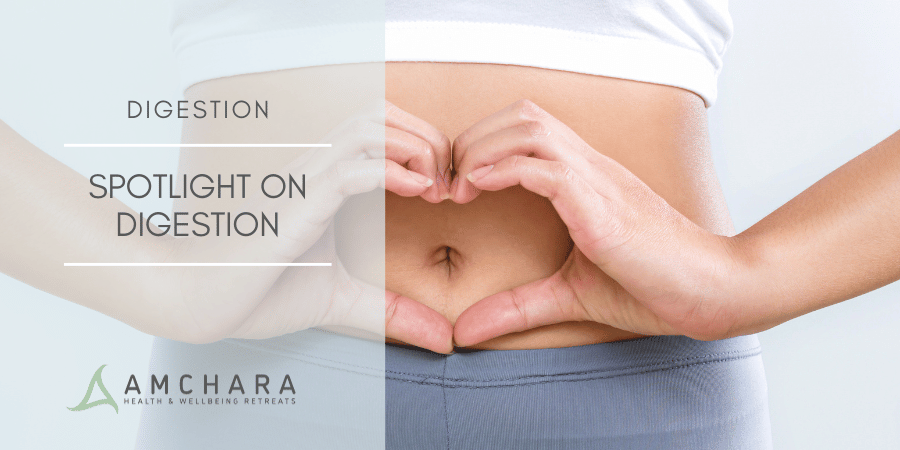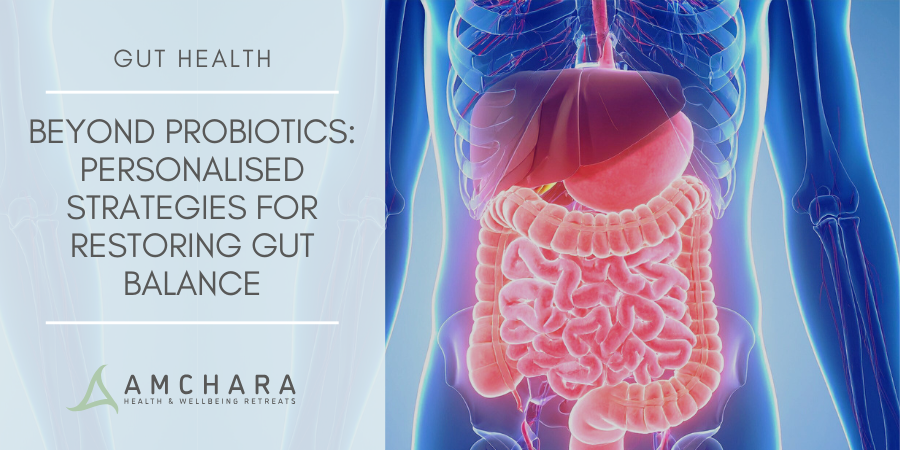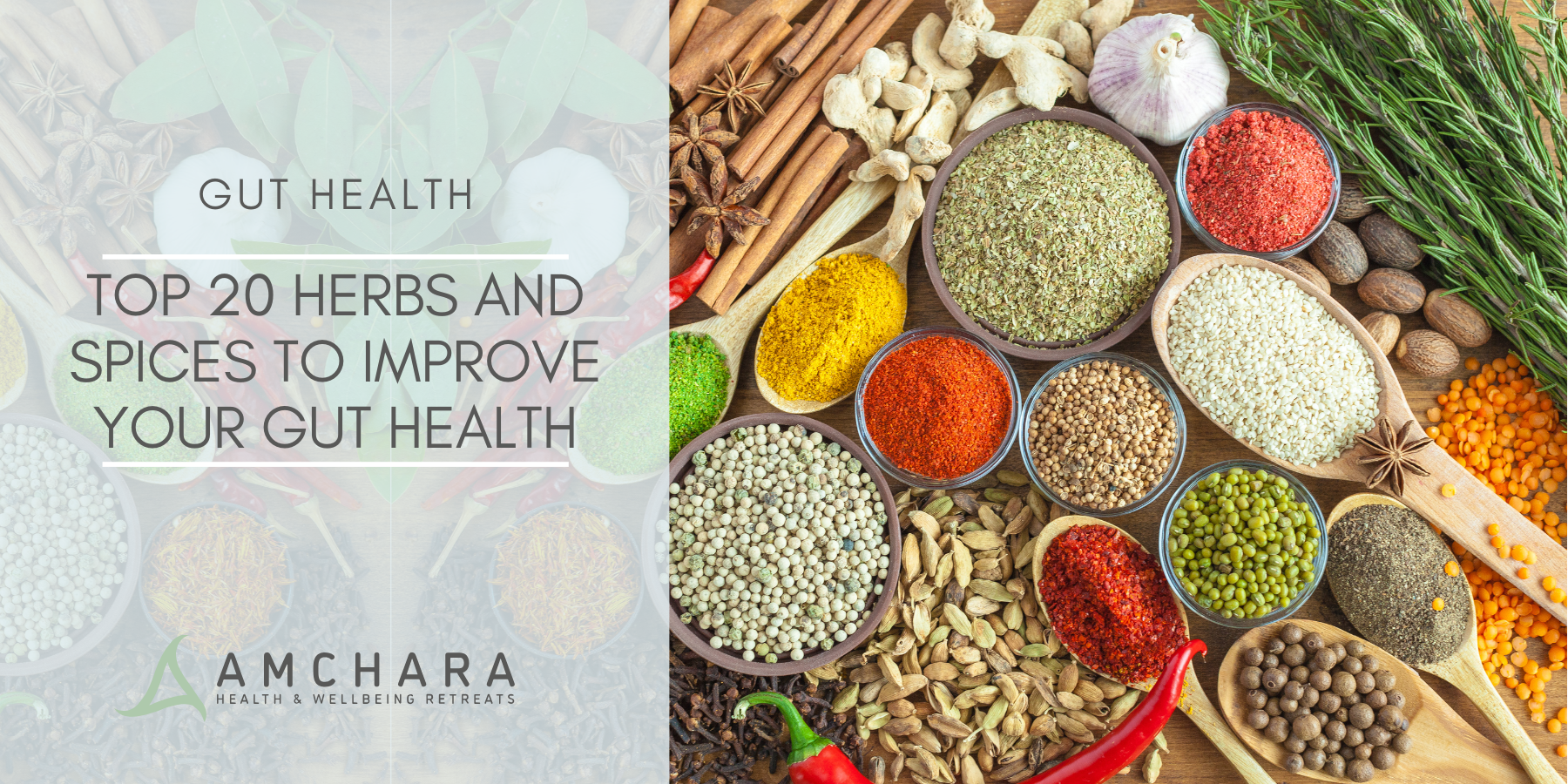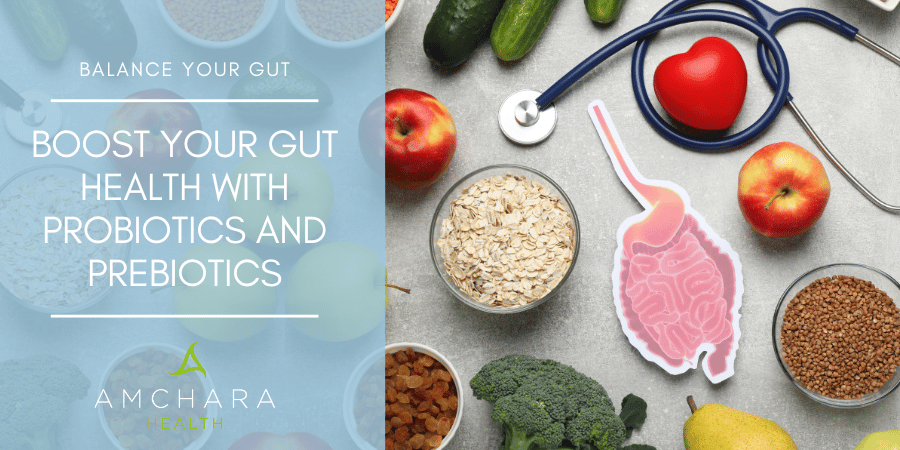What Happens When You Eat a Meal?
You probably don’t give it a second thought, and you don’t generally need to, because your digestive system works automatically.
The only time we tend to think about our digestion and gut health is when it’s not working.
Bloating, gas, indigestion, reflux, stomach cramps, nausea, diarrhoea and constipation are typical examples of a digestive system that is out of sorts.
Problems with your gut? Book a Free Gut Health Consultation Today
The key to the success of this intricate and complex process is a host of digestive enzymes, beneficial bacteria and a healthy intestinal lining, working together to ensure optimal absorption of vital nutrients.
Your digestive tract is essentially a long tube from mouth to anus, which starts to work as soon as you smell and taste food, triggering your brain to release hormones and enzymes to aid the digestion of food.
Your body provides a broad spectrum of enzymes – these biological catalysts each have a specific role to break down starch, fats, proteins and sugars.
This provides your cells with essential nutrients, including water, macronutrients (protein, carbohydrate and fat) and micronutrients (vitamins and minerals).
Vitamins and minerals are already small enough molecules to be absorbed so don’t need breaking down.
Your Mouth
The mechanics of digesting a meal start in your mouth where saliva mixes with the digestive enzyme amylase and gets to work, breaking down the long carbohydrate molecules into smaller chains of starch, known as dextrins.
To feel this in action try chewing a piece of bread until it turns soft.
During this process the amylase will gradually digest the starch into smaller glucose molecules.
Once it reaches that stage you may notice it tastes sweet.
First Stop – The Stomach
The action of swallowing moves food down the oesophagus and delivers it to your stomach where protein digestion occurs, with the help of hydrochloric acid (HCL) and pepsin (activated by HCL).
Pepsin breaks the protein into smaller chains of amino acids known as peptides.
Food is mixed together with these gastric juices by the churning of the stomach.
The acidic environment of the stomach not only facilitates the breakdown of proteins – it also helps to kill off any nasty bacteria.
Lack of optimal HCL secretion is a common problem, known to create gastric disturbances.
Once food is passed into the stomach it is kept there by a band of muscle called the sphincter which snaps shut, preventing the food from pushing back up the oesophagus. If food does get pushed back up the oesophagus, it can be extremely painful due to the mixture of stomach acid and food.
If the sphincter muscle isn’t working properly it can cause the condition known as heartburn.
The stomach lining itself is protected from the HCL by glands that secrete water, mucus and bicarbonate. Long term use of nonsteroidal anti-inflammatory drugs (NSAIDs), such as aspirin and ibuprofen, can reduce the body’s production of hormones that secrete mucus and other substances to neutralise stomach acid.
This can eventually lead to inflammation and the development of ulcers.
During digestion, the stomach also secretes ‘intrinsic factor’, a substance that attaches itself to vitamin B12, allowing it to be absorbed.
Vitamin B12 is bound to proteins in food and can only be released when food is broken down in the stomach by HCL and pepsin. So we can see the importance of HCL and enzymes for optimal digestion and absorption of nutrients.
Ageing impairs the production of acid and enzymes needed to break down food as well as the production of intrinsic factor.
Additionally, the long term use of drugs that suppress acid production in the stomach can create problems.
This type of medication is commonly prescribed to the elderly population who often have problems digesting their food, which can lead to a range of health issues.
READ: Fill up on Fibre and Live Longer
Small Intestine
The small intestine plays an important role in breaking food down for energy.
Muscular contractions in the walls of the intestines mix foods with pancreatic enzymes to break down fat and proteins, as well as continue to break down carbohydrates.
Once the molecules are reduced in size, peptidase and saccharidase – enzymes secreted from the microvilli (surface of folds in the intestinal lining) – complete the breakdown of proteins and starches. Vitamins, minerals and water are also mostly absorbed in the small intestine.
The absorption of these vital nutrients into the body is dependent on the health of the intestinal lining.
Secretions of mucus provide the perfect environment for colonies of beneficial bacteria such as Lactobacillus acidophilus, which maintain the health of the intestinal lining and support immune function.
Colon – The Final Stop
The colon reabsorbs water, converts food into faeces, absorbs essential vitamins and excretes waste products from your body.
The eliminated stool consists mainly of food debris and bacteria.
As well as synthesising various vitamins, the gut bacteria also protect against harmful bacteria and process waste products and food particles.
SO WHY DOES IT GO WRONG SOMETIMES?
Many factors can contribute to a poorly functioning digestive system.
Common culprits include the following:
- A poor diet
- Stress
- Insufficient stomach acid
- Low production of digestive enzymes
- Parasites
- Viruses
- Bacterial infection (H. Pylori)
- Yeasts/fungal infections (candida)
- Alcohol
- Nonsteroidal anti-inflammatory drugs (NSAIDs)
Symptoms like wind, bloating, diarrhoea, constipation, indigestion, stomach cramps, belching and flatulence are a sign that your digestive system is under par.
Ongoing symptoms such as these may reflect a damaged and inflamed intestinal lining. Once inflammation has set in, the intestinal mucosal barrier is weakened and tiny gaps develop between the cells, resulting in intestinal permeability (leaky gut).
Normally, undesirable organisms and undigested foods are prevented from entry into the body, but these gaps allow for easy access, leaving your body vulnerable to toxins, food chemicals, food antigens, pesticide residues, bacteria, yeasts, parasites and viruses.
As well as this the presence of unknown food particles is perceived as foreign material prompting the body to launch an immune attack; very often this is how food sensitivity and intolerance reactions become established.
Where there is a damaged intestine there is also a greater risk of malabsorption of nutrients which can lead to a lack of energy and in some cases may result in chronic fatigue.
Replacing What May Be Lacking
Although your body is adept at manufacturing enzymes to digest carbohydrates, protein and fat, sometimes it may not produce enough.
This can happen for a number of reasons – natural ageing, when the body is challenged through ill health or stress, or poor diet, lacking in the vitamins and minerals needed to make enough enzymes.
Supplementing with ready-made digestive enzymes can help support healthy digestion.
Enzymes are essentially specialised proteins that convert molecules from one form to another.
They are able to speed up metabolic processes and chemical reactions in the body without getting used up in the process.
Digestive enzymes help break food down into nutrients that can then be used both as fuel and to repair and maintain physical structure and function.
Vegetables, fruit and herbs all contain enzymes that facilitate their digestion.
For example, a pear will have all the necessary enzymes that your body needs to utilise its nutrients. However, if the pear was grown in nutrient poor soil, its enzyme content may be inadequate.
Raw fruits and vegetables are the best source of enzymes, as when they have been cooked our bodies need to produce the enzymes needed to digest them.
While all raw foods contain digestive enzymes, some have specific targets.
Protein digestion can be aided by the proteolytic enzymes found in fruits like papaya and pineapple, whereas other plants contain lipase enzymes that break down fats – some vegetables and fruits have enzymes that are more efficient at digesting carbohydrates.
Sadly, modern intensive farming methods have gradually depleted the amount of nutrients in the soil our food is grown in – as a result of this, many people could probably benefit from an enzyme supplement to encourage optimum absorption of nutrients.
Know Your Enzymes
Before you purchase a digestive aid it is advisable to know what enzymes you need and what to look out for.
Each type of food requires a specific enzyme for complete digestion and absorption so it may be best to look for a formula that covers all bases.
It’s always best to consult an experienced Health Practitioner who will take into account your individual heath situation.
Table of enzymes
|
Enzyme |
Helps to Digest |
|
Alpha-galactosidase |
Carbohydrates in legumes that cause flatulence |
|
Amylase |
Starches |
|
Cellulase |
Cellulose (fibre) in fruits, vegetables, grains, and seeds |
|
Glucoamylase |
Maltose, the sugar in grains |
|
Invertase |
Sucrose (table sugar) |
|
Lactase |
Lactose (milk sugar) |
|
Lipase |
Fats |
|
Malt diastase |
Carbohydrates |
|
Protease |
Proteins |
|
Peptidase |
Casein (in milk) and gluten (in grains) |
|
Xylanase |
Components of plant cell walls (fibre) |
|
Tannase |
Tannic acid |
Additional Supplements To Support Digestion
Low Stomach Acid
Betaine helps to correct low stomach acid levels which may relieve heartburn, bloating and indigestion. It can also make sure that digestion of protein is initiated, helping to prevent food allergies.
Anti-inflammatory
Cat’s Claw – a traditional medicinal herb known to have soothing anti-inflammatory properties which are particularly beneficial for intestinal health, food allergies and infections.
Fish Oil or Flax Oil – provide the body with a source of omega-3 essential fatty acids, which the body converts into prostaglandins. These are believed to act like localised hormones capable of reducing intestinal inflammation.
Ginkgo biloba – this herb may prevent damage to the intestinal mucosa by providing a protective anti-inflammatory action.
Intestinal Healing
L-glutamine – an amino acid which can be used by the intestinal mucosa cells as a fuel supply, meeting energy demands for the rapid cell turnover required for growth and repair of the mucosa.
Gamma Oryzanol – a substance found in brown rice, known to be protective to the intestinal mucosa.
Chlorella – a blue green algae, often called a superfood because of its abundant levels of amino acids, vitamins and trace minerals, all of which are necessary for cellular healing.
Aloe Vera – contains ‘mucopolysaccharides’, recognised for their healing anti-inflammatory and antibacterial properties, helping to promote healthy mucus secretions in the intestines. Not only does this restore the protective coating, it also maintains the ideal environment to encourage proliferation of friendly bacteria.
Jacqueline Newson BSc (Hons) Nutritional Therapy
Related Gut Health Stories:
- The Gremlins in Your Gut
- IBS: Could the FODMAP Diet Transform Your Life?
- Good Health Starts in the Gut
- Study: Gluten-Free Diet Influences Gut Health
- Your Gut: The Centre of Your Health
- Q: Is Your Gut In Balance?
- Connections: Leaky Gut and Grains
- Highlights: Spotlight on Digestion
References
- * Festen HP. Intrinsic factor secretion and cobalamin absorption. Physiology and pathophysiology in the gastrointestinal tract. Scand J Gastroenterol Suppl. 1991; 188:1-7.
- * Kreutle S & Toohey L (1999). Nutritional Physiology : Clinical Applications and Scientific Research. HealthQuest Publishing: UK.
- * Pubmed Health. Gastritis: How can you prevent peptic ulcers caused by painkillers? https://www.ncbi.nlm.nih.gov/pubmedhealth/PMH0078823/[ accessed 30.3.18].









